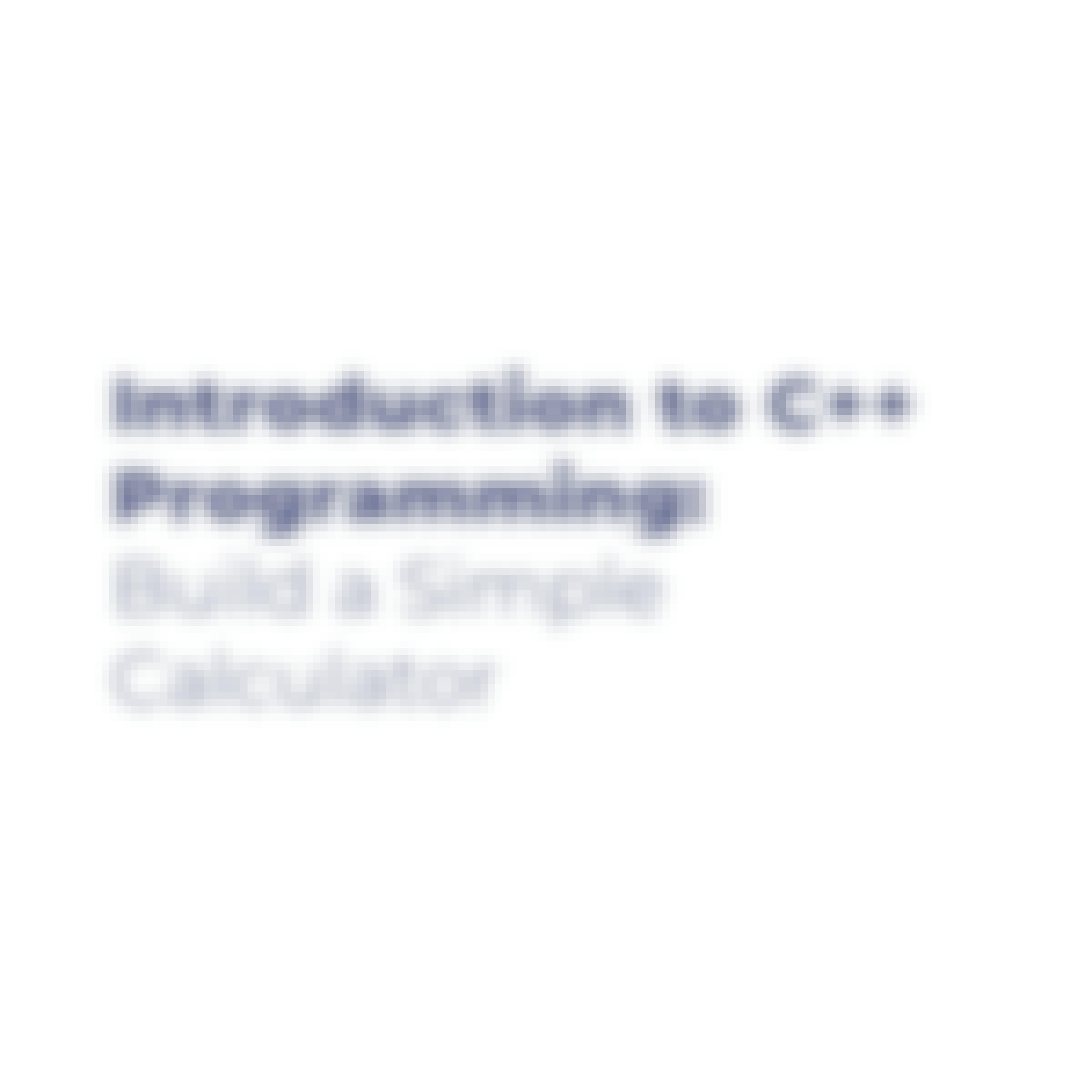Filter by
SubjectRequired
LanguageRequired
The language used throughout the course, in both instruction and assessments.
Learning ProductRequired
LevelRequired
DurationRequired
SkillsRequired
SubtitlesRequired
EducatorRequired
Explore the Calculus Course Catalog
 Status: Preview
Status: PreviewTecnológico de Monterrey
Skills you'll gain: Applied Mathematics, Algebra, Mathematical Modeling, Mathematics Education, Graphing, Calculus, Mathematical Theory & Analysis, Graphical Tools, Derivatives
 Status: Free Trial
Status: Free TrialImperial College London
Skills you'll gain: Analytical Skills, Sampling (Statistics), Statistical Hypothesis Testing, Data Literacy, Data Analysis, Statistical Software, R Programming, Statistics, Public Health, Descriptive Statistics, Probability Distribution, Data Import/Export
 Status: Free Trial
Status: Free TrialUniversity of Toronto
Skills you'll gain: Control Systems, Embedded Software, Automation, Software Architecture, Simulations, Safety Assurance, Hardware Architecture, Systems Architecture, Verification And Validation, Mathematical Modeling, Engineering Analysis, Computer Hardware, Risk Management Framework, Mechanics
 Status: Preview
Status: PreviewTecnológico de Monterrey
Skills you'll gain: Education Software and Technology, Calculus, Applied Mathematics, Algebra, Mathematical Modeling, Mathematical Software, Graphing, Derivatives
 Status: Preview
Status: PreviewÉcole Polytechnique Fédérale de Lausanne
Skills you'll gain: Numerical Analysis, Engineering Analysis, Engineering Calculations, Differential Equations, Finite Element Methods, Mathematical Software, Matlab, Mathematical Modeling, Applied Mathematics, Linear Algebra, Mathematical Theory & Analysis, Calculus, Estimation, Integral Calculus, Advanced Mathematics, Algorithms, Derivatives
 Status: Free Trial
Status: Free TrialUniversity of Alberta
Skills you'll gain: Reinforcement Learning, Deep Learning, Machine Learning Algorithms, Machine Learning, Supervised Learning, Artificial Neural Networks, Pseudocode, Linear Algebra, Probability Distribution
 Status: Free Trial
Status: Free TrialImperial College London
Skills you'll gain: Dimensionality Reduction, NumPy, Probability & Statistics, Feature Engineering, Jupyter, Data Science, Statistics, Linear Algebra, Python Programming, Advanced Mathematics, Machine Learning, Calculus

Coursera Project Network
Skills you'll gain: Program Development, C and C++, C++ (Programming Language), Object Oriented Programming (OOP), Computer Programming, Development Environment, Software Development, Computer Science
 Status: Free Trial
Status: Free TrialNew York University
Skills you'll gain: Supervised Learning, Applied Machine Learning, Machine Learning, Statistical Methods, Artificial Neural Networks, Predictive Modeling, Scikit Learn (Machine Learning Library), Regression Analysis, Deep Learning, Financial Services, Finance, Tensorflow, Jupyter, Reinforcement Learning
 Status: Preview
Status: PreviewÉcole Polytechnique
Skills you'll gain: Probability, Probability Distribution, Statistical Methods, Sampling (Statistics), Statistical Inference, Simulations, Statistical Modeling
 Status: Free Trial
Status: Free TrialUniversity of Toronto
Skills you'll gain: Global Positioning Systems, Estimation, Machine Learning Methods, Computer Vision, Spatial Data Analysis, Mathematical Modeling, Linear Algebra
 Status: Free Trial
Status: Free TrialUniversity of Toronto
Skills you'll gain: Algorithms, Computer Vision, Predictive Modeling, Scenario Testing, Data Structures, Spatial Data Analysis
In summary, here are 10 of our most popular calculus courses
- 3.- El Cálculo - Modelo Cúbico: Tecnológico de Monterrey
- Introduction to Statistics & Data Analysis in Public Health: Imperial College London
- Introduction to Self-Driving Cars: University of Toronto
- 2.- El Cálculo - Modelo Cuadrático: Tecnológico de Monterrey
- Analyse numérique pour ingénieurs: École Polytechnique Fédérale de Lausanne
- Prediction and Control with Function Approximation: University of Alberta
- Mathematics for Machine Learning: PCA: Imperial College London
- Introduction to C++ Programming: Build a Calculator: Coursera Project Network
- Guided Tour of Machine Learning in Finance: New York University
- Aléatoire : une introduction aux probabilités - Partie 2: École Polytechnique










